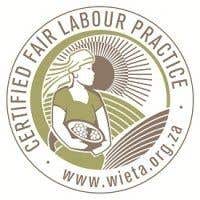Many congratulations to whomever it was who pushed through the hugely significant plans announced yesterday in South Africa to accelerate the implementation of fair labour practices on wine farms and in cellars. It cannot have been that easy to convince a well-established industry that inspections and the creation of this special seal to distinguish all bottles of wine produced to agreed ethical criteria was worth the effort. But this, surely, really is a breakthrough in human terms.
But presumably the concerns of foreign customers such as the Swedish liquor monopoly and the most important retailers of South African wine in the UK must have spurred them on, not least in the light of the contentious Human Rights Watch report on which I commented last October in Cleaning up the Cape.
The not-for-profit Wine and Agricultural Industry Ethical Trade Association (WIETA), established a decade ago and recently beefed up, will monitor compliance. The fair labour initiative is supported not just by foreign retailers but also by all the key players in South African wine: the Food & Allied Workers' Union (FAWU), Sikhula Sonke, Women on Farms, SA Liquor Brandowners' Association (SALBA), Wine Cellars SA and the producer organisation VinPro.
Only those producers who, after inspection, are seen to have met WIETA's criteria of reasonable working conditions will be entitled to use the seal on their wines – this is the grand plan and it is expected that currently compliant producers will start to use the seals later this year. The WIETA code of good practice 'precludes the use of child labour, asserts that employment should be freely chosen and that all employees should have the right to a healthy and safe working environment. Amongst the conditions it sets are that workers should have the right to freedom of association, a living wage and to be protected from unfair discrimination. Worker housing and tenure security rights should also be respected.'
Head of WIETA Linda Lipparoni explained that 'the fast-tracking ethical programme would be implemented in three phases, starting with the simultaneous training of workers, owners and management in labour law and the WIETA code of fair trading principles. All training manuals would be supplied free of charge by WIETA.
'After the initial training phase, all producers would be required to complete assessment forms to determine their level of compliance and would be given further support from WIETA in taking the necessary steps to address gaps. In the final stage of the process, producers would be required to pass a full WIETA audit, involving on-site inspections.'
The weakness, as I see it, is in this little get-out for brand owners, who will have to 'enter an annually renewable, legally binding agreement with WIETA. To ensure total traceability brand owners would have to identify all their suppliers. At least 60% of these suppliers would also have to be WIETA-accredited, while the other 40% would have to demonstrate that they were preparing themselves for accreditation.' Anyone can show they are 'preparing themselves' for something, can't they? I would suggest that those famous 'rotten apples' (see wine writer Tim James's thoughtful reaction to this latest news at grape.co.za) will rattle comfortably around in this 40% let-out clause for quite a while. And I'm a bit saddened by the conditional tense.
But that is my only cavil. I am really thrilled and impressed by this initiative and can only marvel at the mountain-moving that must have gone on behind the scenes.
WIETA will be working with Wines of South Africa (WOSA), who will promote the new ethical seal, along with Fairtrade and Fair for Life, to trade and consumers. For more information visit www.wieta.org.za.
Su Birch of WOSA comments:
I am not too concerned about the 40% showing progress. They will have to have made real tangible progress within a year or the right to use the seal will not be renewed. We have discussed this with the unions and labour organisations at the WIETA exco.
I don't see a soft version of accreditation getting through, while we have organisations like Women and Farms and Sikula Sonke on the board and whose credibility is on the line.
I think the challenge will be getting thousands of small producers through the system in time to meet the demand that the global trade will put on South Africa.
Tim James adds:
At the recent Franschhoek Wine Valley board meeting and at its preceeding Vignerons Owners Forum, it was decided that full WIETA accreditation and certification will become a requirement for membership.
That means all of the members of the Vignerons de Franschhoek will have to comply and undergo audit. Farms supplying grapes to Vignerons will also be required to fully comply.
'As a wine route, we challenge the other wine routes to match this commitment,' say Franschhoek's Vignerons.

